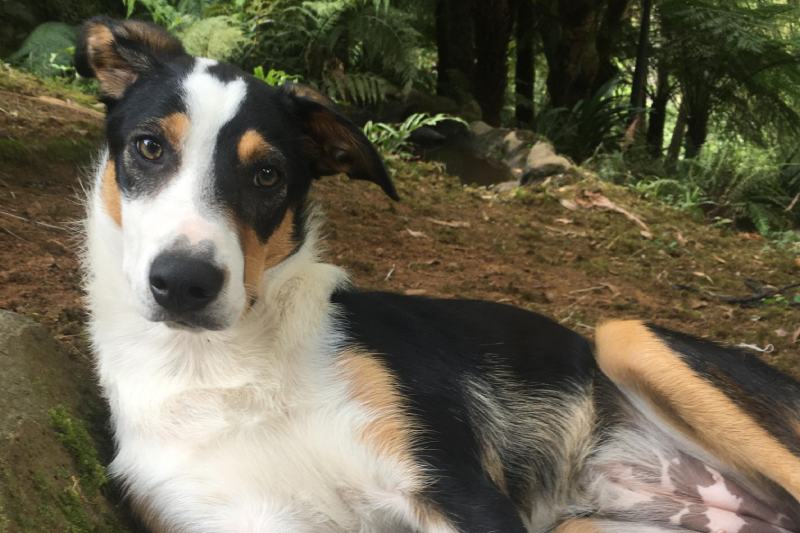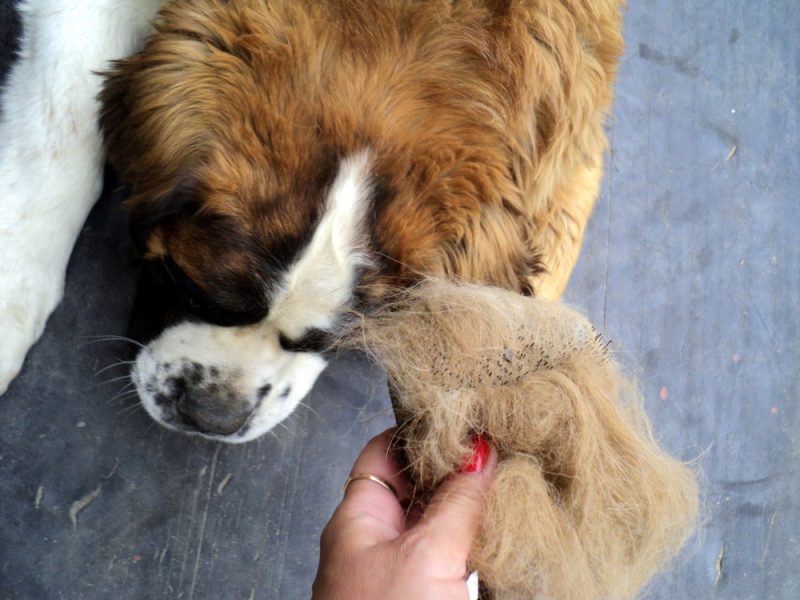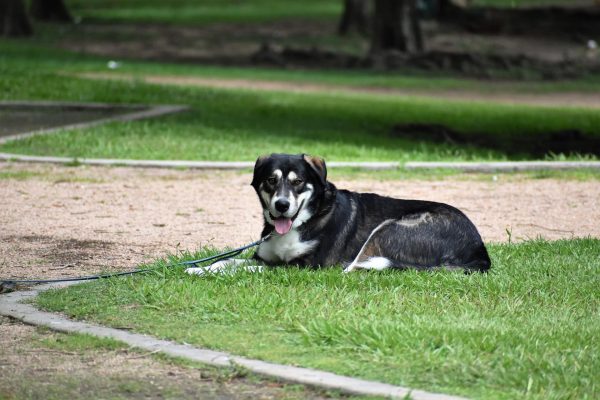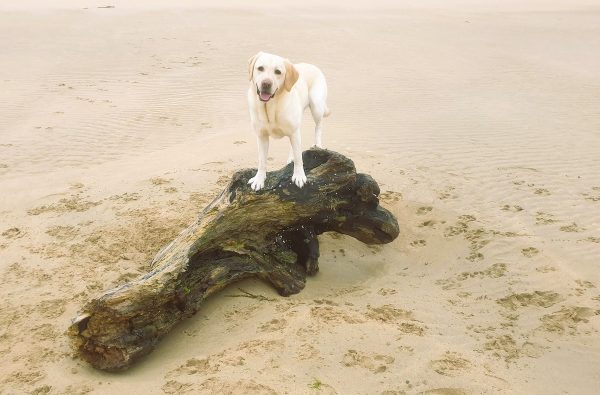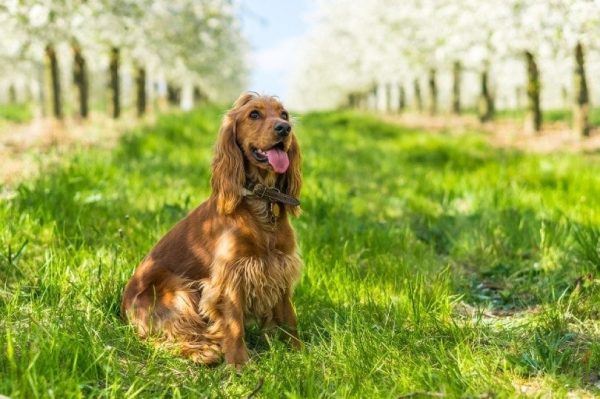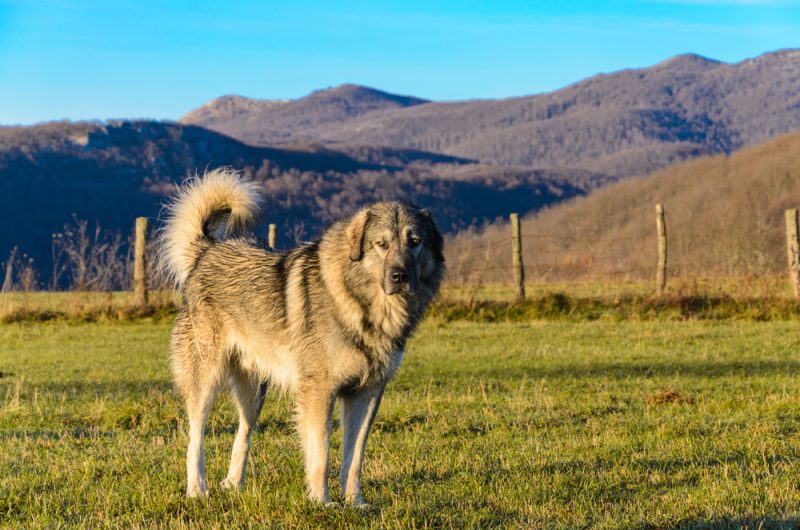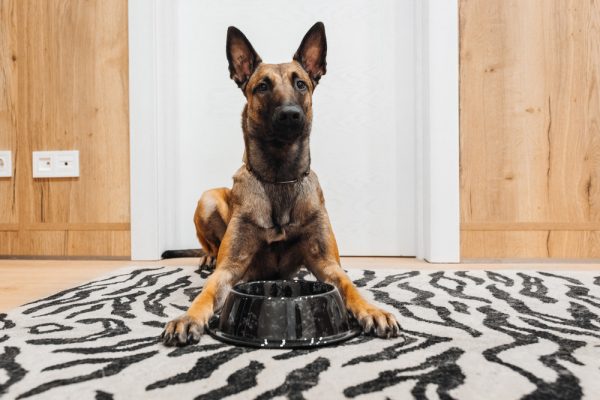In this article
View 8 More +The New Zealand Heading Dog is an all-purpose canine that thrives on a farm. They were bred from Scottish Border Collies and have many of the same traits, such as their incredible herding skills and quick reactions. Without these dogs, the cost of farming sheep would be much higher in New Zealand.
There is more to these big dogs than their herding skills; they are also loving, loyal, and gentle with their family members.
Breed Overview
Height:
20–24 inches
Weight:
55–66 pounds
Lifespan:
12–15 years
Colors:
Black, white, fawn
Suitable for:
Active families, people who live and work on sheep or cattle farms
Temperament:
Sensitive, affectionate, active, intelligent
Despite their popularity in New Zealand, the New Zealand Heading pups have never been recognized as an official breed by any kennel club. However, due to their skill and intelligence, they have been allowed to register as non-pedigree working dogs and can perform in dog sports. They are judged on their abilities rather than their appearance.
The New Zealand Heading Dog is a faithful companion, eager to spend the whole day with their owners as they move from task to task. They require a lot of attention, both mentally and physically, and will struggle without it. However, these little athletes are easy to maintain as their grooming needs are relatively low.
New Zealand Heading Dog Characteristics

New Zealand Heading Puppies
If you’ve seen a New Zealand Heading pup, you’re one of the lucky ones since they’re hard to find, especially in countries other than New Zealand. However, if you’re determined to see one for yourself, you will most likely spot one competing in a dog show. Due to their rarity and the small number of New Zealand Heading Dog breeders, they can be sold at a high price.
The pups are adorable and energetic, a characteristic they carry into adulthood. As sweet-natured as they are, they are sensitive and must be socialized early to combat their shyness.

Temperament & Intelligence of the New Zealand Heading Dog
New Zealand Heading Dogs live to please their owners and have brilliant minds, which makes them easy to train. They respond best to positive reinforcement, consistency, and a strong leader. They are strong-willed and may challenge authority, but if you’re patient in your training and establish your dominance early on, you can curb any undesirable behavior.
They’re active dogs that never seem to run out of energy, even after a long day. This makes them ideal for farm life. They are born herders and do so instinctively. They will herd you and your family if they don’t have any sheep to herd. They are fast, energetic, and have quick responses. They use these qualities and their eyes to control the flock around them and get them moving in the direction they want.
The Heading dog is loving, affectionate, and joyful. If you give them the exercise, training, and attention they need, you will have a content and obedient dog. They’re always looking for something to do, and you can bring them along on outings and activities.
Are These Dogs Good for Families?
New Zealand Heading Dogs love all the activity that comes with a big family and adapt well to it. They love their owners and are loyal and affectionate to them. They also get along with children as they can keep up with their energy. However, because of their strong instinct to herd, they may try to nip at their heels and round them up. This is not done out of aggression, and you can train this undesired behavior out of them.
Heading dogs also do well with single, highly active people. However, they are not a good option for elderly people, inactive owners, or first-time dog owners. They need plenty of exercise and, due to their strong-willed natures, need owners who know how to handle them. Unfortunately, if they are allowed to take over and haven’t received the necessary training, they can become reactive and unpredictable, creating an environment that is not conducive to children.
Does This Breed Get Along with Other Pets?
Heading dogs get along with other dogs and can even learn to live with cats. However, they aren’t great with smaller pets, such as birds or rodents, and it would be best to separate them from these animals. As with children, New Zealand Heading Dogs will try and herd smaller pets, too.
It is necessary to socialize these pups early and expose them to people, pets, children, and new environments. When bringing a new pet home, take the introduction slowly, and don’t leave your dog unsupervised until they are all comfortable and relaxed with each other. A New Zealand Heading Dog’s large size can also threaten smaller pets, so supervised play is recommended.

Things to Know When Owning a New Zealand Heading Dog:
Food & Diet Requirements
New Zealand Heading Dogs burn energy fast because they are always active and have big appetites. They love food and don’t know when to stop eating, so they never leave large quantities of food out but give them several small meals throughout the day. How much food you need to give your dog depends on their age, weight, health issues, and activity levels, so it is important to read the recommendations on the packaging. However, they do well on high-quality dog food that is age-appropriate.
High-calorie dog food that is high in animal proteins is essential for this type of dog. The whole meat or meat meal ingredients should be listed first on the dog food packaging. New Zealand Heading Dogs also need fruits, vegetables, and whole grains in their food, but on a much smaller scale than the protein.
Water is another daily essential for New Zealand Heading Dogs. Working in the heat and maintaining their stamina can dehydrate them quickly, so water should always be available and nearby.
Exercise
Exercise is an integral part of every New Zealand Heading Dog’s life. They do well on around 120 minutes of activity per day. You can break this exercise time up by doing various activities with them throughout the day, such as running, hiking, swimming, or walking. Even playing a game of fetch or tug of war will exert some of their energy. Taking them to run at dog parks or dog-friendly beaches is another great option if you aren’t a highly active owner.
Exercise isn’t only important for burning off energy. It also builds muscle, maintains a healthy weight, builds confidence, contributes to overall health, improves sleep, and reduces behavioral issues. If you do not have the time or mobility to provide your dog with the necessary exercise, consider hiring a dog walker to take your dog out for you.
A New Zealand Heading Dog will become bored and frustrated without rigorous exercise. They’ll start to dig, bark excessively, and chew clothes and furniture to release their energy. Not only will they become destructive, but they may also become neurotic and difficult to handle.
Training
New Zealand Heading Dogs need strong leadership, which will be established through training. They are intelligent and fast learners, which makes them easy to train and excellent competitors in dog shows. As puppies, it is a good idea to expose them to other dogs, as early socialization is a must. This can be done by going to dog parks or joining a puppy school.
Training also stimulates New Zealand Heading Dogs mentally, which reduces boredom. Therefore, training never reaches an end with this breed and should be done regularly. You can also stimulate these dogs mentally through searching games and food puzzles.
Grooming ✂️
New Zealand Heading Dogs have a medium-length, straight coat that is not too dense. They only require weekly brushings, and their coat does best with a pin brush, slicker brush, and de-shedder. You can bathe a New Zealand Heading Dog three to four times a year or more regularly if necessary.
With all the exercise these dogs do, their nails tend to stay short. However, you can cut them with a dog-friendly nail clipper if they get too long. Always check their eyes and ears for signs of infection and brush their teeth to prevent gum disease. It’s best to use dog-friendly toothpaste and toothbrushes since those designed for humans are not suitable for your dog.
Health and Conditions
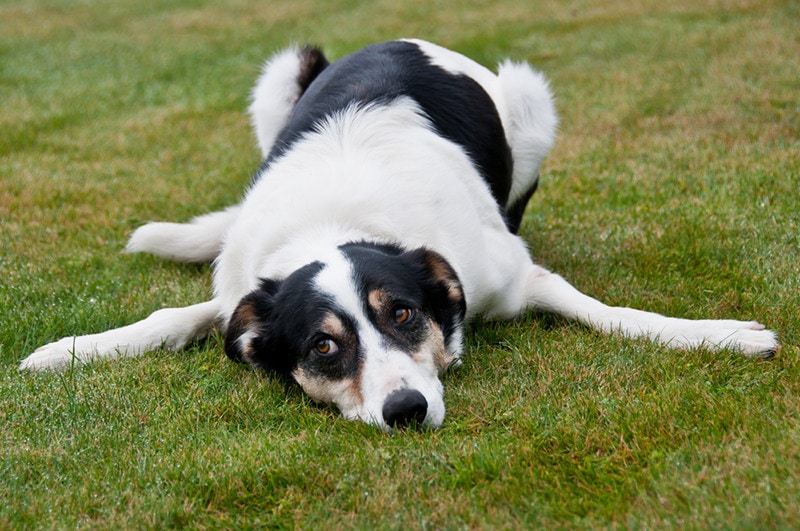
New Zealand Heading Dogs are a fairly healthy and hardy breed. Some can struggle with bloat as well as elbow and hip dysplasia. Bloat can be very serious, especially if it is not treated quickly. It’s a condition whereby the stomach is stretched to the point of pain. It can stretch so much that it can block off the blood flow to the stomach. It has several causes but eating or drinking too quickly is believed to be one of them.
New Zealand Heading Dogs are also susceptible to eye problems. Eye and ear infections are common, as with most breeds, but due to their Border Collie ancestry, they are at risk for progressive retinal atrophy, which can slowly lead to blindness. The good news is that it is not painful, but the bad news is that there is no treatment for it.
It is important to clean your dog’s eyes and ears often and take them to the vet if you see any signs of discomfort or inflammation. But it is just as necessary to take them for regular eye examinations to look for early signs of progressive retinal atrophy. Although nothing can be done to stop the progression, catching it early will help you prepare yourself and your home to best care for your dog.
- Ear and eye infections
- Cataracts
- Bloat
- Hip and elbow dysplasia
- Progressive retinal atrophy
Male vs Female
Male and female New Zealand Heading Dogs share many of the same features, so there isn’t much that sets them apart. However, males tend to be a bit larger and weigh more. Unneutered females will go on heat and, if mated with, will produce a litter size of 3–5 puppies.

3 Little-Known Facts About the New Zealand Heading Dog
1. They Vary in Looks
New Zealand Heading Dogs vary slightly from one dog to the next because they weren’t bred for their looks but for their abilities. However, they are usually black and white and can have tan areas too. They have long legs, a long snout, and ears that sit up straight on their heads.
2. They Aren’t Big Barkers
This dog doesn’t need a big bark to get their sheep moving where they want them. In fact, the New Zealand Heading Dog isn’t much of a barker at all. They may bark if they sense something is off, to sound an alarm, out of boredom or separation anxiety, or because they want attention. New Zealand Heading Dogs aren’t great guarding dogs because they’re not highly territorial.
3. They’re Smarter Than Most Dogs
Like the Border Collie, the New Zealand Heading Dog is intelligent and can understand and memorize an above-average number of commands. They learn quickly and love challenges to solve. They also enjoy all the attention they receive when they do something correctly.

Final Thoughts
Although not registered with any kennel club, the New Zealand Heading Dog contributes significantly to the success of New Zealand’s sheep farming industry. They are bred from Border Collies and have many similarities, mainly their desire to work and energetic nature. They are hard to find in countries other than their place of origin but sometimes compete in dog shows, where they excel. They’re intelligent, easy to train, and well-natured dogs that are affectionate and wonderful companions.
The New Zealand Heading Dog is not suitable for first-time dog owners, people who travel a lot for work, and the elderly, as they need a lot of exercise and attention to thrive. They do best in families with other dogs and with active single people.
Featured Image Credit: Young New Zealand Heading dog (Image Credit: GrimGee, Wikimedia Commons CC 4.0 International)
